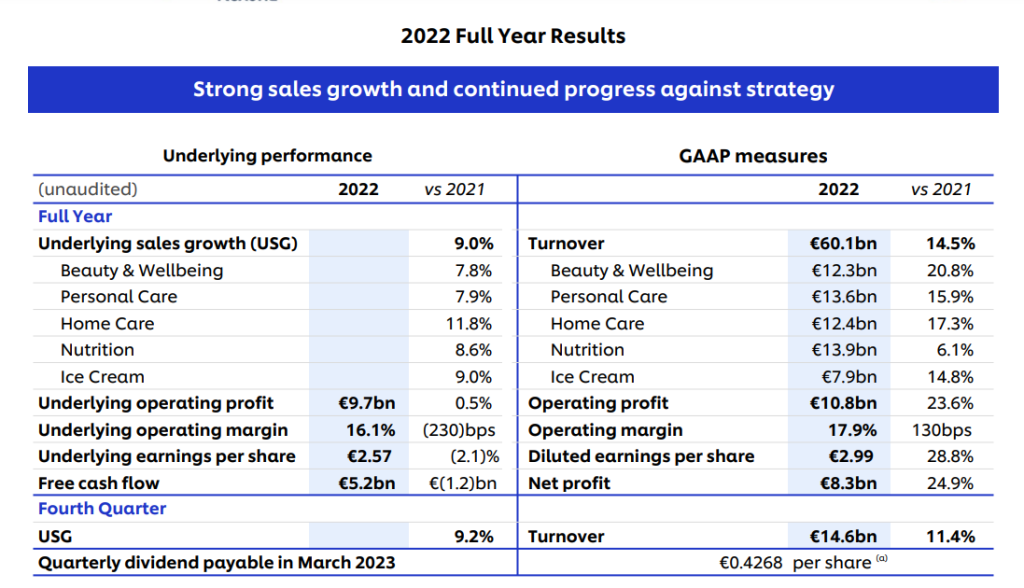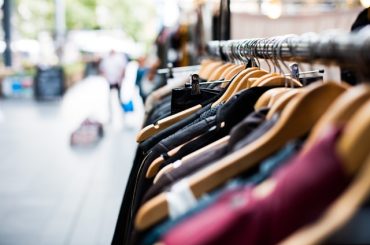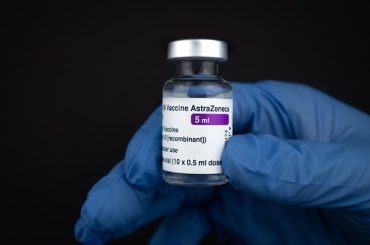Before we dive deep into the PESTEL analysis, let’s get the business overview of Unilever. Unilever is one of the world’s leading suppliers of fast-moving consumer goods in food, home care, and personal care.
Founded in 1929 due to a merger between the British soapmaker Lever Brothers and the Dutch margarine producer Margarine Unie, Unilever has become a global powerhouse in the FMCG (Fast Moving Consumer Goods) sector.
Here is an overview of Unilever’s business:
- Products and Brands: Unilever’s portfolio includes a wide range of products across diverse categories. Some of its most recognizable brands include Dove, Axe/Lynx, Ben & Jerry’s, Lipton, Magnum, Hellmann’s, Knorr, Sunsilk, and Surf, among others.
- Global Presence: Unilever operates in over 190 countries, and its products are used by billions of consumers daily. The company’s operations are often divided into regions: Europe, the Americas, Asia, Africa, and the Middle East.
- Business Segments: Unilever’s business can be broadly categorized into three main segments:
- Beauty & Personal Care: This is the largest segment and includes skincare, haircare, deodorants, and oral care products.
- Home Care: This includes laundry detergents, household cleaning products, and related offerings.
- Foods & Refreshment: This segment comprises a diverse range of food products, including soups, bouillons, sauces, snacks, mayonnaise, salad dressings, spreads, and ice cream.
Financial Performance of Unilever in 2023
Turnover decreased 0.8% to €59.6 billion, and the underlying operating profit was €9.9 billion, up 2.6% versus the prior year.

Business Strategies that set FMCG giant “Unilever” a class apart
Here is the PESTEL analysis of Unilever
A PESTEL analysis is a strategic management framework used to examine the external macro-environmental factors that can impact an organization or industry. The acronym PESTEL stands for:
- Political factors: Relate to government policies, regulations, political stability, and other political forces that may impact the business environment.
- Economic factors: Deal with economic conditions and trends affecting an organization’s operations, profitability, and growth.
- Sociocultural factors: Relate to social and cultural aspects that may influence consumer preferences, lifestyles, demographics, and market trends.
- Technological factors: Deal with developing and applying new technologies, innovations, and trends that can impact an industry or organization.
- Environmental factors: Relate to ecological and environmental concerns that may affect an organization’s operations and decision-making.
- Legal factors: Refer to the laws and regulations that govern businesses and industries.
In this article, we will do a PESTEL Analysis of Unilever.
PESTEL Analysis Framework: Explained with Examples
Political
- Trade Regulations and Tariffs: Unilever operates in over 190 countries, so changes in trade policies, such as the imposition of tariffs or trade barriers, can have significant implications on its supply chain and distribution strategies.
- Political Stability: Countries with political unrest or instability can affect Unilever’s operations. For instance, civil strife, sudden regime changes, or political violence can disrupt the company’s manufacturing, distribution, or sales processes in those regions.
- Government Policies: Governmental policies related to health, safety, and quality standards can impact Unilever’s product formulations. For instance, certain countries may restrict specific ingredients in personal care or food products.
- Taxation Policies: Changes in tax regulations or corporate tax rates in countries where Unilever has significant operations can influence its financial performance.
- Regulation on Advertising and Promotion: Governments may impose regulations on how certain products (like foods with high sugar content or skincare products) are advertised or promoted. This can affect Unilever’s marketing strategies.
- Environmental Regulations: Political decisions related to environmental conservation can affect Unilever, especially given the company’s sustainability objectives. For example, regulations related to plastic packaging or waste management can impact Unilever’s operations.
- Foreign Relations and Geopolitical Issues: Political relationships between countries can affect Unilever’s operations, especially in regions with geopolitical tensions. For instance, strained relations between countries could affect trade and business operations.
- Regulations on International Investment: Some countries may have restrictions or policies encouraging or discouraging foreign investments. This could influence Unilever’s decisions to set up factories and distribution networks or even to enter or exit specific markets.
- Labor Laws: Political decisions related to labor, such as minimum wage regulations, worker rights, and union-related policies, can impact how Unilever manages its workforce in different countries.
Economic
- Global Economic Conditions: Economic downturns, recessions, or global economic crises can affect consumer spending habits. During economic downturns, consumers might switch to cheaper alternatives, which could affect sales of some of Unilever’s premium products.
- Currency Exchange Rates: Given its global operations, fluctuations in exchange rates can significantly impact Unilever’s earnings. A stronger or weaker currency can influence the cost of importing raw materials and sales profitability in foreign markets.
- Interest Rates: Changes in interest rates in different countries can impact Unilever’s financing decisions and costs. Higher interest rates can increase borrowing costs, whereas lower rates might present expansion opportunities.
- Inflation Rates: High inflation in a country can increase raw materials, production, and labor costs. It also affects consumer purchasing power, which might impact sales.
- Consumer Purchasing Power: A rising middle class and increasing disposable income in emerging economies can lead to greater demand for Unilever’s products. Conversely, economic challenges can decrease this power, leading to reduced sales.
- Employment Rates: High employment rates often correlate with higher consumer confidence and spending, benefiting companies like Unilever. Conversely, high unemployment can lead to decreased consumer spending.
- Raw Material Prices: The costs of raw materials, such as agricultural commodities for food products or chemicals for cleaning products, can fluctuate based on global economic conditions. Such fluctuations can impact Unilever’s cost structure and profitability.
- Competitive Landscape: Economic conditions can influence the competitive environment. During challenging times, there might be price wars, new entrants looking for market share, or even consolidation in the industry.
- Economic Policies: The economic policies of countries, such as fiscal policies, monetary policies, or trade policies, can impact how Unilever operates in specific regions.
- Emerging Markets Dynamics: The growth rates and economic conditions in emerging markets, like India, China, or Brazil, can provide opportunities for expansion and growth for Unilever. However, they also come with unique economic challenges and volatilities.
Sociocultural
- Changing Consumer Preferences: As societal values change, so do consumer preferences. For instance, there’s a growing trend towards natural, organic, and environmentally friendly products. If Unilever doesn’t adapt to these changes, it might lose market share to niche brands that cater to these preferences.
- Health and Wellness Trends: Increased awareness about health and well-being can influence purchasing decisions. There’s a rising demand for healthier food options, skincare products without harmful chemicals, and sustainable products.
- Cultural Nuances: Unilever operates in over 190 countries, each with its own cultural norms and traditions. What’s acceptable or popular in one culture might not be in another. For instance, beauty standards, dietary habits, and cleanliness norms can vary widely.
- Demographic Changes: Factors like aging populations in certain countries or young populations in others can influence product demand. For example, an aging population might increase the demand for certain healthcare or wellness products.
- Gender Norms and Roles: Changing perceptions about gender roles, especially in traditionally conservative societies, can impact the demand for specific products. For example, increasing acceptance of men’s grooming and skincare products in certain cultures can open up new markets for Unilever.
- Lifestyle Changes: As lifestyles change, so do consumption habits. For instance, the rise of urban living might increase the demand for convenience products. Similarly, increasing travel might boost the demand for travel-sized personal care items.
- Ethical and Social Responsibility Concerns: Modern consumers, especially younger generations, often prefer brands that uphold ethical values, support social causes, or have sustainability initiatives. Unilever’s commitment to sustainability, therefore, not only aligns with its corporate responsibilities but also caters to this consumer preference.
- Influence of Social Media: The power of social media influencers and online communities in shaping consumer perceptions and trends cannot be understated. A positive or negative review by a key influencer can significantly impact product sales.
- Family Dynamics: Changes in family structures and dynamics, such as increasing numbers of single-person households or dual-income families, can influence product preferences and consumption habits.
- Education and Awareness: Higher levels of education and awareness in societies can lead to increased demand for quality products and products that align with modern values (e.g., cruelty-free products).
Technological
- E-Commerce and Online Retail: The rise of e-commerce platforms offers a new avenue for sales. Unilever must ensure its products are readily available online and manage logistics efficiently in this digital sales environment.
- Data Analytics and Consumer Insights: Advanced data analytics tools allow companies to understand consumer preferences, habits, and buying patterns in more detail. This data can be leveraged for product development, targeted marketing campaigns, and inventory management.
- Digital Marketing: With consumers spending more time online, digital advertising and marketing techniques (like social media marketing, influencer collaborations, and content marketing) become essential tools to reach potential customers effectively.
- Supply Chain Management Systems: Technological advancements in supply chain management can lead to more efficient and cost-effective processes, reducing waste and ensuring timely delivery of products.
- Product Innovation: Technologies related to product formulation, research, and development can lead to innovative products that cater to evolving consumer needs. For instance, advancements in biotechnology might lead to new skincare formulations.
- Sustainable Technologies: Given Unilever’s commitment to sustainability, investing in technologies that reduce environmental impact (like eco-friendly packaging solutions) is crucial.
- Smart Manufacturing and Automation: Using automation, AI, and Industry 4.0 principles in manufacturing can improve efficiency, reduce costs, and increase production capacities.
- Digital Communication Tools: Technologies like chatbots for customer service, augmented reality for virtual product trials (e.g., virtual makeup testers), or mobile apps for loyalty programs can enhance the customer experience.
- Blockchain: Blockchain technology can be used in the supply chain to ensure transparency and traceability of products, especially for claims like “organic” or “ethically sourced.”
- Internet of Things (IoT): In the context of consumer goods, IoT can lead to smart appliances that influence product formats. For example, smart fridges might suggest recipes based on their contents, indirectly influencing food product preferences.
Environmental
- Sustainability Initiatives: Unilever has made several commitments towards sustainability. Consumer preferences are also shifting towards products and brands that prioritize sustainability. Addressing this through sustainable sourcing, reducing waste, and other eco-friendly practices can impact Unilever’s brand image and operations.
- Climate Change: Changes in global climate patterns can affect the supply of raw materials, especially agricultural commodities. This might result in price fluctuations or the availability of essential ingredients for Unilever’s products.
- Water Usage: Many of Unilever’s products, especially in the personal care and home care segments, require significant water usage. Given the global concern over water scarcity, there’s a push for products that need less water or companies that adopt water conservation techniques in their manufacturing processes.
- Packaging Concerns: The environmental impact of packaging materials, especially plastics, is significant. To minimize its environmental footprint, Unilever needs to consider alternative packaging solutions that are biodegradable or recyclable.
- Regulations and Compliance: Many countries enact stricter environmental regulations concerning emissions, waste management, and sustainability. To avoid legal issues and potential backlash, Unilever must ensure compliance with these regulations across its global operations.
- Biodiversity: Sourcing certain natural ingredients can impact biodiversity, especially if not done sustainably. Ethical and sustainable sourcing is crucial to ensure that ecosystems are not harmed.
- Carbon Footprint: There’s a growing emphasis on reducing carbon emissions. Unilever’s manufacturing and transportation operations need to consider strategies to reduce their carbon footprint.
- Energy Consumption: Adopting renewable energy sources and optimizing energy use in manufacturing units can lead to operational cost savings and align with global sustainability goals.
- Consumer Awareness: Modern consumers are more informed about environmental issues. This awareness can influence their purchasing decisions, pushing them towards eco-friendly products and brands.
- Waste Management: Efficient waste management, especially in manufacturing units, is essential to reduce environmental impact and ensure compliance with local regulations.
Legal
- Regulatory Compliance: Different countries have varying regulations related to product standards, health and safety, labeling, advertising, and quality. Ensuring compliance with these standards across different markets is critical for Unilever.
- Intellectual Property (IP) Rights: Protecting patents, trademarks, and copyrights is vital for a company with numerous proprietary products and brand names. Additionally, Unilever needs to ensure it does not infringe on the IPs of others.
- Labor and Employment Laws: Different countries have diverse labor laws regarding working hours, wages, benefits, and workers’ rights. Adhering to these laws is crucial for Unilever’s operations in various regions.
- Trade and Tariff Regulations: As a global entity, Unilever must navigate international trade laws, customs duties, and tariff regulations that could impact its supply chain and distribution.
- Antitrust and Competition Laws: Given its significant market presence, Unilever needs to be cautious about potential anti-competitive behavior, monopolistic practices, or actions that could be perceived as limiting competition.
- Environmental Laws: Many countries have strict environmental regulations concerning emissions, waste disposal, water usage, and sustainability. Unilever must ensure its operations align with these environmental laws.
- Data Protection and Privacy: With the increasing importance of data in marketing and operations, adhering to data protection regulations like the GDPR in Europe is crucial for Unilever.
- Advertising and Promotion Laws: Countries may have specific rules about how products can be advertised, especially if they pertain to health claims, children’s advertising, or potentially misleading information.
- Taxation Laws: Given its operations across numerous countries, Unilever must navigate the complex web of international taxation laws, ensuring it pays the correct taxes in each jurisdiction and adheres to regulations related to profit repatriation, transfer pricing, and more.
- Contract and Commercial Laws: Engaging with suppliers, distributors, and other stakeholders requires contracts. Adherence to contract laws and international commercial laws is vital for smooth business relationships.











